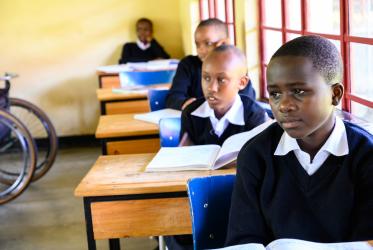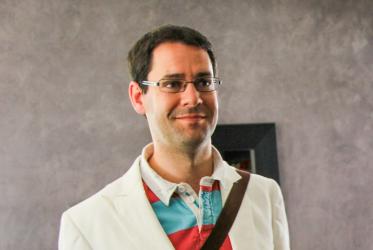Displaying 1 - 20 of 36
In a COVID-stricken world, “everyone is important”
23 October 2020
The cry of the Papuans in Indonesia
14 November 2019
Mission and people with disabilities
26 June 2019
Faith and HIV treatment go hand in hand
06 March 2019
Fr Alexi - a peacemaker in Syria
21 December 2018
#WCC70: Children in the Ecumenical Movement
20 December 2018
Konrad Raiser shares ecumenical journey of transformation
06 February 2018
"I hit the ground running": Katalina Tahaafe-Williams
16 February 2016
Voices of faith speaking to voices of fear
03 February 2016











